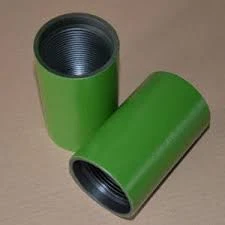- Afrikaans
- Albanian
- Amharic
- Arabic
- Armenian
- Azerbaijani
- Basque
- Belarusian
- Bengali
- Bosnian
- Bulgarian
- Catalan
- Cebuano
- Corsican
- Croatian
- Czech
- Danish
- Dutch
- English
- Esperanto
- Estonian
- Finnish
- French
- Frisian
- Galician
- Georgian
- German
- Greek
- Gujarati
- Haitian Creole
- hausa
- hawaiian
- Hebrew
- Hindi
- Miao
- Hungarian
- Icelandic
- igbo
- Indonesian
- irish
- Italian
- Japanese
- Javanese
- Kannada
- kazakh
- Khmer
- Rwandese
- Korean
- Kurdish
- Kyrgyz
- Lao
- Latin
- Latvian
- Lithuanian
- Luxembourgish
- Macedonian
- Malgashi
- Malay
- Malayalam
- Maltese
- Maori
- Marathi
- Mongolian
- Myanmar
- Nepali
- Norwegian
- Norwegian
- Occitan
- Pashto
- Persian
- Polish
- Portuguese
- Punjabi
- Romanian
- Russian
- Samoan
- Scottish Gaelic
- Serbian
- Sesotho
- Shona
- Sindhi
- Sinhala
- Slovak
- Slovenian
- Somali
- Spanish
- Sundanese
- Swahili
- Swedish
- Tagalog
- Tajik
- Tamil
- Tatar
- Telugu
- Thai
- Turkish
- Turkmen
- Ukrainian
- Urdu
- Uighur
- Uzbek
- Vietnamese
- Welsh
- Bantu
- Yiddish
- Yoruba
- Zulu
Optimizing Threading and Casing Coupling in Wholesale API Applications
Understanding Wholesale API Threading, Casing, and Coupling
In the oil and gas industry, the exploration and production processes are both complex and demanding. Essential components play a vital role in ensuring that operations run smoothly and safely. Among these components, API threading, casing, and coupling have critical importance. This article delves into each of these elements while exploring their relevance in wholesale supply chains.
What is API Threading?
API threading refers to the standardized method of creating threads on pipes, casing, and tubing that are used in drilling and production. API, or the American Petroleum Institute, has set forth specifications that govern how these threads are made. The most common APIs for threading are API 5B and API 5CT, which cater to the specifications for casing and tubing while providing essential guidelines for the design, manufacturing, and inspection processes.
The significance of API threading cannot be understated. It provides a uniform standard that ensures compatibility between different manufacturers. This compatibility is crucial as it allows for seamless interchangeability of components, which can significantly reduce downtime during drilling operations. Wholesale suppliers that understand and meet API standards can offer products that are not only reliable but also safe for use in high-pressure environments.
Casing The Protective Barrier
Casing is a crucial part of the drilling process. It refers to the steel pipes installed in the wellbore to provide structural integrity and prevent the collapse of the well. Moreover, casing serves to isolate different pressure zones within the well, ensuring that unwanted fluids do not flow into the production zone. This is particularly important in protecting groundwater resources from contamination.
Casing must be manufactured to precise specifications to endure high pressures and corrosive environments often found underground. This is where wholesale suppliers come into play. By offering high-quality, API-standardized casing, they can ensure that operators have access to safe and reliable equipment. The ability to source casing from a reputable wholesale supplier can contribute significantly to the overall efficiency and safety of drilling operations.
wholesale api threading casing coupling

Coupling The Connection Point
While casing provides the structural integrity of a well, coupling serves as the connection point between individual casing strings and pipes. Couplings allow operators to join different lengths of casing together effectively. They must be designed to not only fit securely but also withstand the rigors of drilling and production pressures.
API standards include specific guidelines on the dimensions and strength of couplings, ensuring that they can handle the stresses placed upon them during operation. Wholesale suppliers who provide high-grade couplings that meet API standards are pivotal in delivering the reliability and performance that the industry demands. A failure at a coupling point typically results in costly downtime and extensive repairs, making the quality of these components essential.
Importance of Wholesale Supply Chains
The wholesale supply chain for API threading, casing, and coupling is crucial in maintaining a steady flow of essential components to oil and gas operators. A well-established wholesale supplier can streamline operations by providing an extensive inventory of various sizes and types of API-certified products. This can significantly reduce lead times and ensure that operators are never left waiting for vital equipment.
Moreover, many wholesale suppliers offer additional services, such as cutting, threading, and custom fabrication, which can further enhance their value proposition. This adaptability allows them to meet the diverse needs of drilling projects, from onshore to offshore operations.
Conclusion
In summary, API threading, casing, and coupling are foundational elements in the oil and gas industry that ensure safe and efficient operations. Understanding the significance of these components, alongside the role of wholesale suppliers, is vital for industry practitioners. By collaborating with knowledgeable bulk suppliers who adhere to API standards, oil and gas companies can enhance their operational reliability, reduce downtime, and ultimately contribute to the successful exploration and production of petroleum resources. As this industry continues to evolve, the importance of quality and compliance in the supply chain will remain a key factor in achieving operational excellence.
-
Tubing Pup Joints: Essential Components for Oil and Gas OperationsNewsJul.10,2025
-
Pup Joints: Essential Components for Reliable Drilling OperationsNewsJul.10,2025
-
Pipe Couplings: Connecting Your World EfficientlyNewsJul.10,2025
-
Mastering Oilfield Operations with Quality Tubing and CasingNewsJul.10,2025
-
High-Quality Casing Couplings for Every NeedNewsJul.10,2025
-
Boost Your Drilling Efficiency with Premium Crossover Tools & Seating NipplesNewsJul.10,2025







